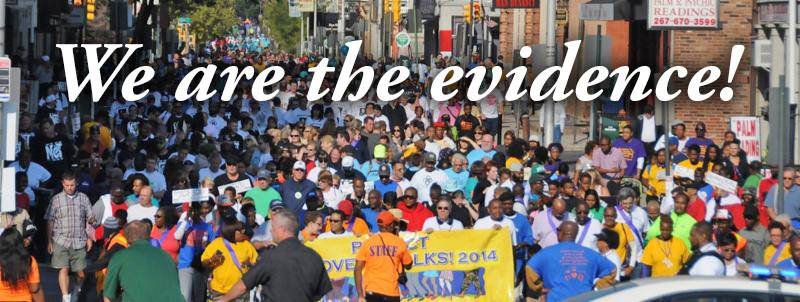Carry the message. And if you must, use words.
--Dr. Robert Smith, Co-founder, Alcoholics Anonymous

What can I do to help spur the development of recovery advocacy and new recovery support services within my local community? What can I do to support the larger cultural and political mobilization of people in recovery and their allies? Such questions arrive daily based on my writings on the history of the New Recovery Advocacy Movement. Below are my most frequently proffered suggestions.
Confront your own Shame (internalized stigma). Social action begins with a change in personal consciousness. You can elevate that consciousness by exploring your own feelings about addiction and recovery. Do you avoid opportunities to share your recovery status or how addiction and recovery have affected your family? Do you find the subject embarrassing? For those who work in addiction treatment, do you find yourself masking your profession in new social situations? How do you react to people's responses to the disclosure of what you do?Confronting addiction/recovery-related social stigma begins with confronting the stigma we have absorbed into our own being.
Break Silence at Home (within your family and social circle). Moving from shame to self-acceptance requires breaking silence about stigmatized issues. The first (and often hardest) area within which to break silence is to one's own family and social network. Many recovery advocates can stand in front of a state capital and speak to hundreds or thousands of people about their addiction and recovery but have not shared even the briefest version of that story with their grandparents, aunts and uncles, nieces and nephews, and their friends. Recovery advocacy begins at home.
Educate Yourself (about recovery pathways different than your own). You are not the universe is a needed foundational premise. Learn about pathways and styles of recovery different than your own. Practice humility and tolerance as you encounter others who have experienced alternative ways of healing. There are many pathways to recovery and all are cause for celebration is a central mantra of the new recovery advocacy movement. As an advocate, you are not seeking to impose or promote your particular recovery pathway or style of recovery on others. Your task is to validate and celebrate the growing varieties of recovery experience. Achieving that task requires a process of self-education to move beyond the limits of your own experience. Self-education includes learning about recovery within diverse communities and cultures.
Find Kindred Spirits and Organize. Advocacy related to any stigmatized status or condition can be as distressing and exhausting as it is exhilarating. Advocacy is an activity best done through a community of shared experience and commitment. Reach out to others who share your interest and forge an advocacy community no matter how small the original circle. Link yourself to national (e.g., Faces and Voices of Recovery, Young People in Recovery) and state/local recovery advocacy organizations (See listings at Association of Recovery Community Organizations).
Study the History of the Recovery Advocacy Movement. Social movements are as complex and messy in their execution as they are noble in their intentions. The experiential lessons drawn from the birth and evolution of this movement can guide you through the unfolding stages of your own involvement. Each new generation of recovery advocates pledges anew its commitment to respect, humility, and self-care (the primacy of personal recovery) by becoming a student of this history.
Formulate Your Public Story (about the transformative power of recovery). One's public recovery story presented in the context of recovery advocacy should be different in content and style from that shared with trusted friends or within the rooms of recovery mutual aid fellowships. The latter often focuses on the details of the addiction and recovery experience where the former focuses on one's recovery status and the transformative power and fruits of recovery experienced by individuals, families, and communities. Such distinctions, their rationale, and the importance of language and protecting boundaries of privacy can be acquired through the messaging training provided by recovery advocacy organizations.
Offer Public Witness. Recovery stories when publically disclosed provide a form of living proof more powerful than research studies or expert testimony. Such shared stories affirm that individuals and families can and do survive addiction, achieve enhanced global health and functioning, live meaningful?lives, and make significant contributions within their communities and the larger society. Of everything you do as an advocate, nothing will be more powerful than sharing your own'story andModeling?a life lived fully and deeply.
Contribute Time, Skills, and Money. Recovery brings assets that can be returned to others as an act of amends and gratitude. Those assets can be reinvested in widening the doorways of recovery for others on a personal and even social policy level. Invest your time and talents. And invest a portion of the financial resources flowing from your recovery to support organizations that make recovery possible for others. Contribute money to the education and advocacy organizations that confront stigma and discrimination. Contribute money to service organizations that provide treatment and recovery support services. Share your resources with individuals and families who are struggling in early recovery. It makes no sense for recovering people to donate to all manner of other causes and not donate to recovery-focused organizations.

A Movement of One For those who aren't suited for the emotional rigors of involvement in formal social movements or don't have access to local recovery advocacy organizations, you can function as a movement of one. Tell your recovery story no matter how different that story is from the dominant recovery stories in your community. Even as a single voice, you can convey a motto of the new recovery advocacy movement: Recovery by any means necessary under any circumstances. As Gandhi challenged, we must become the change we wish to see in the world. We can stand with millions of others or stand as a movement of one. But stand we must and shall.
All that is needed to seed recovery advocacy?at a local level is?a story, a commitment, and a sense or urgency.